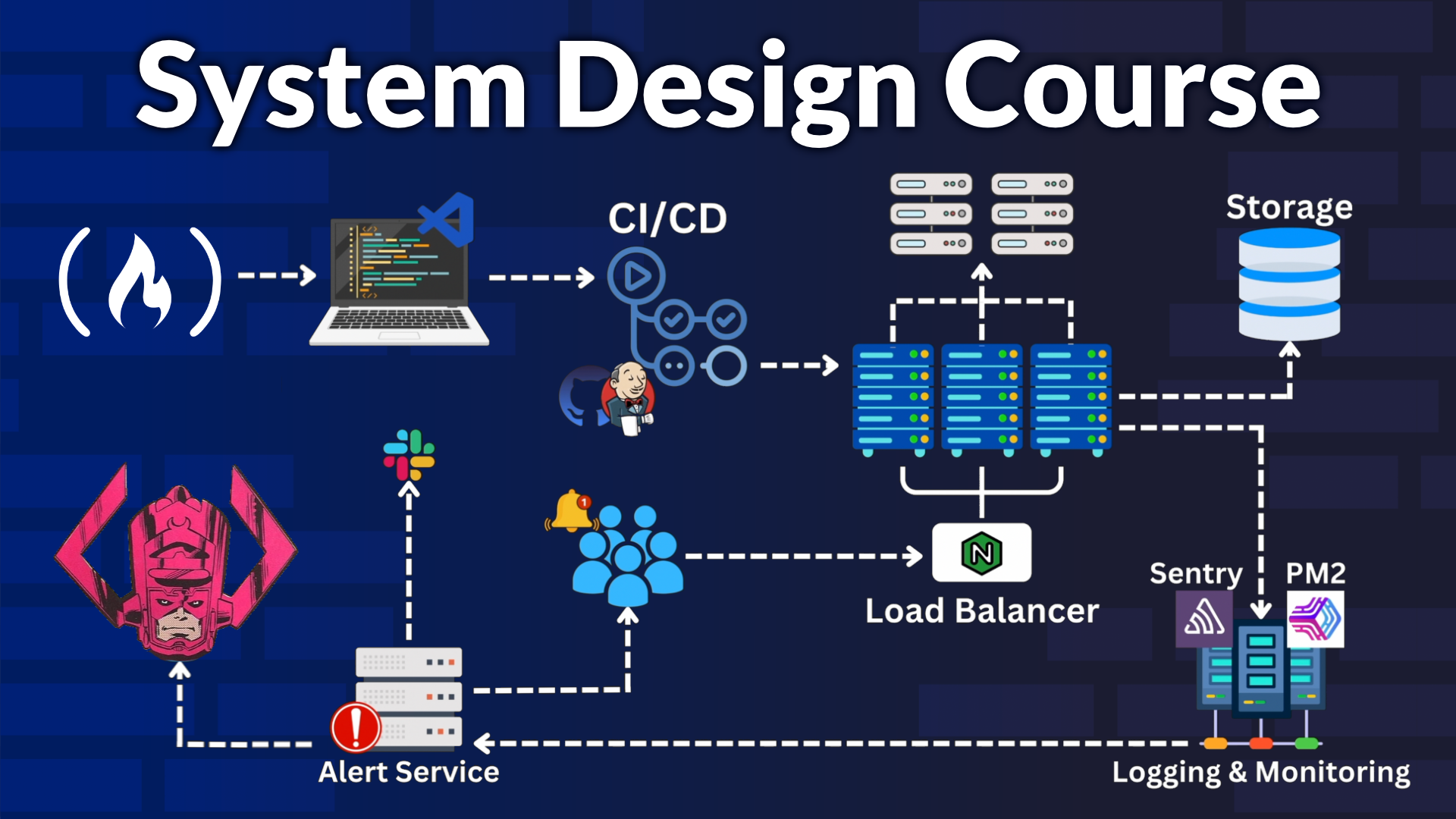
Learn System Design Principles and Prepare for an Job Interview
Learn System Design Principles and Prepare for an Job Interview 관련

Mastering system design is important for anyone who wants to build scalable and reliable applications. System design includes a range of topics from basic computer architecture to complex networking concepts, each playing an important role in creating efficient, robust systems.
We just published a course on the freeCodeCamp.org YouTube channel that will teach you all about system design. Created by Hayk Simonyan, this comprehensive tutorial teaches the core aspects of system design, providing clear explanations, real-world examples, and practical strategies. This course covers essential topics like scalability, reliability, data handling, and high-level architecture, making it an invaluable resource for mastering system design.
Course Breakdown
Introduction
The course kicks off with an introduction to system design, setting the stage for the detailed topics that follow. This section provides an overview of why system design is important and what you can expect to learn.
Computer Architecture
In this section, you will explore the fundamentals of computer architecture, including disk storage, RAM, cache, and CPU. Understanding these components is essential for designing systems that are both efficient and scalable.
Production App Architecture
Here, the course teaches the architecture of production applications, covering Continuous Integration/Continuous Deployment (CI/CD), load balancers, and logging & monitoring. These concepts are important for maintaining and scaling applications in a real-world environment.
Design Requirements
This section focuses on the critical design requirements of modern systems. Topics include the CAP Theorem, throughput, latency, and Service Level Objectives (SLOs) and Service Level Agreements (SLAs). These principles help ensure that systems meet their performance and reliability goals.
Networking
A deep dive into networking covers TCP, UDP, DNS, IP addresses, and IP headers. Networking is the backbone of any distributed system, and understanding these protocols is important for designing robust architectures.
Application Layer Protocols
The course also covers various application layer protocols such as HTTP, WebSockets, WebRTC, and MQTT. These protocols are important for building interactive and real-time applications.
API Design
Effective API design is crucial for creating scalable and maintainable systems. This section provides guidelines and best practices for designing APIs that are easy to use and efficient.
Caching and CDNs
Learn about caching mechanisms and Content Delivery Networks (CDNs) to optimize performance and reduce latency. These techniques are essential for handling high traffic loads and ensuring fast response times.
Proxy Servers
The course explains the roles of forward and reverse proxy servers in system design. Proxies can enhance security, load balancing, and caching, making them a vital part of modern architectures.
Load Balancers
Explore different types of load balancers and their importance in distributing traffic across multiple servers. Load balancers help maintain system reliability and availability.
Databases
Finally, the course covers database design, including sharding, replication, ACID properties, and vertical and horizontal scaling. These concepts are important for managing large datasets and ensuring data integrity and availability.
Hayk Simonyan's course is packed with detailed explanations and practical examples to help you master system design. Watch the full course on the freeCodeCamp.org YouTube channel (1-hour watch).